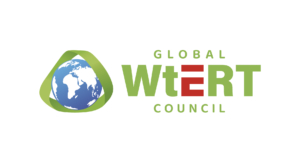Doctoral Thesis: Mitigation of High Temperature Corrosion in Waste-to-Energy Power Plants
By Timothy T. Sharobem
2016
Waste-to-energy (WTE) is the environmentally preferred method of managing postrecycling wastes. In this process, municipal solid waste is combusted under controlled conditions to generate steam and electricity. Waste is by nature heterogeneous and has a substantially high concentration of chlorine (0.47-0.72 wt%) as compared to coal fuel. During combustion, chlorine forms several products, hydrogen chloride and metal chlorides, which can accelerate the high temperature corrosion of boiler surfaces, especially superheater tubes. This corrosion has been shown to significantly impact plant efficiency and profitability, causing unplanned shutdowns or preemptively forcing operators to limit steam temperatures.
